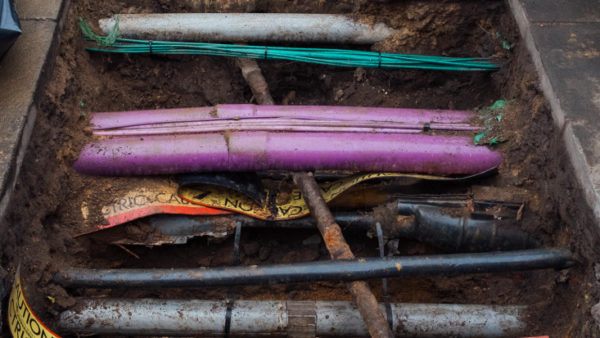
A Morgan Sindall project plans to use BIM and data to improve the construction industry’s waste management.
The contractor, along with BIMBox, University of Salford, University of Manchester and Arcas & Callisto Consulting, will undertake a four-year research project. Known as RECONMATIC, the project will explore automated solutions for sustainable construction and demolition waste (CDW) management.
Using digital construction and BIM, the project partners aim to develop methods that will help to better identify and minimise waste during the entire lifecycle of a building.
The project, funded by UK Research and Innovation and EU R&D funding programme Horizon Europe, will create solutions that can be easily adopted by all stakeholders involved in CDW processes. The aim is to reach the expected future EU target of high CDW recovery (to be set in 2024 or beyond) and zero CDW by 2050.
Morgan Sindall will employ its Intelligent Solutions approach, under which digital and platform design capabilities are combined with modern construction methods and innovative carbon reduction tools.
The company has already gathered CDW data for materials such as concrete, steel and plasterboard. Working with the University of Salford, it will use this data to valorise waste and map out optimised waste streams for construction materials – with the ambition of realising a true circular economy.
Creating a dataset for waste
Morgan Sindall and BIMBox will also lead the development of a new dataset, known as WASTEie. The intention is to simplify information exchange, data assignment and classification, at both project level and between organisations.
The dataset, built on the foundations of open formats (including IFC schema), will seek to standardise waste information and encompass new attributes to support BIM models as circular economy tools.
A standardised information dataset for waste-related matters does not currently exist. Once live, it is hoped it will provide clearer routes for collaboration that estates teams, contractors and designers can use to take advantage of BIM and digital construction processes to proactively reduce waste.
In tandem, Morgan Sindall’s Materials Data Bank (MDB) will be interlinked to and from WASTEie, ensuring the latest manufacturer and product data is shared and stored.
Alongside this, the team will employ generative design tools to establish AI-driven optimisation initiatives, such as waste predictor tools. These will interlink with the MDB and WASTEie dataset to ensure the same data and language is used throughout and to support new and existing developments.
Morgan Sindall claims the predictor tools will establish new, more accurate benchmark targets throughout a project’s lifecycle. This will help clients, developers, consultants and contractors to make more informed choices to design out waste from the outset.
‘Exciting initiative’
Barry Roberts, North West MD of Morgan Sindall Construction, said: “This composition of our consortium will enable the project to tackle the whole-life cycle of waste management, propose beyond-state-of-the-art technologies, and contribute to reaching the zero-waste construction industry in Europe that we all desire.
“Throughout RECONMATIC, we want to engage with industry stakeholders and policymakers to encourage the widespread adoption of the innovations we will deliver. This is a really exciting initiative and comes at a time when the development of net zero solutions has never been more important.”
Juan Ferriz-Papi, lecturer in building surveying at the University of Salford, added: “Change is difficult to promote in the construction industry, but the new challenges to achieve net-zero targets means we need to introduce automation technologies to improve performance, quality and sustainability in our buildings. This project looks in detail at the different stages of the construction asset lifecycle.
“Data management and stakeholder collaboration are the main focus on RECONMATIC, where the University of Salford is contributing from the Built Environment and Robotics departments.”
Don’t miss out on BIM and digital construction news: sign up to receive the BIMplus newsletter.














